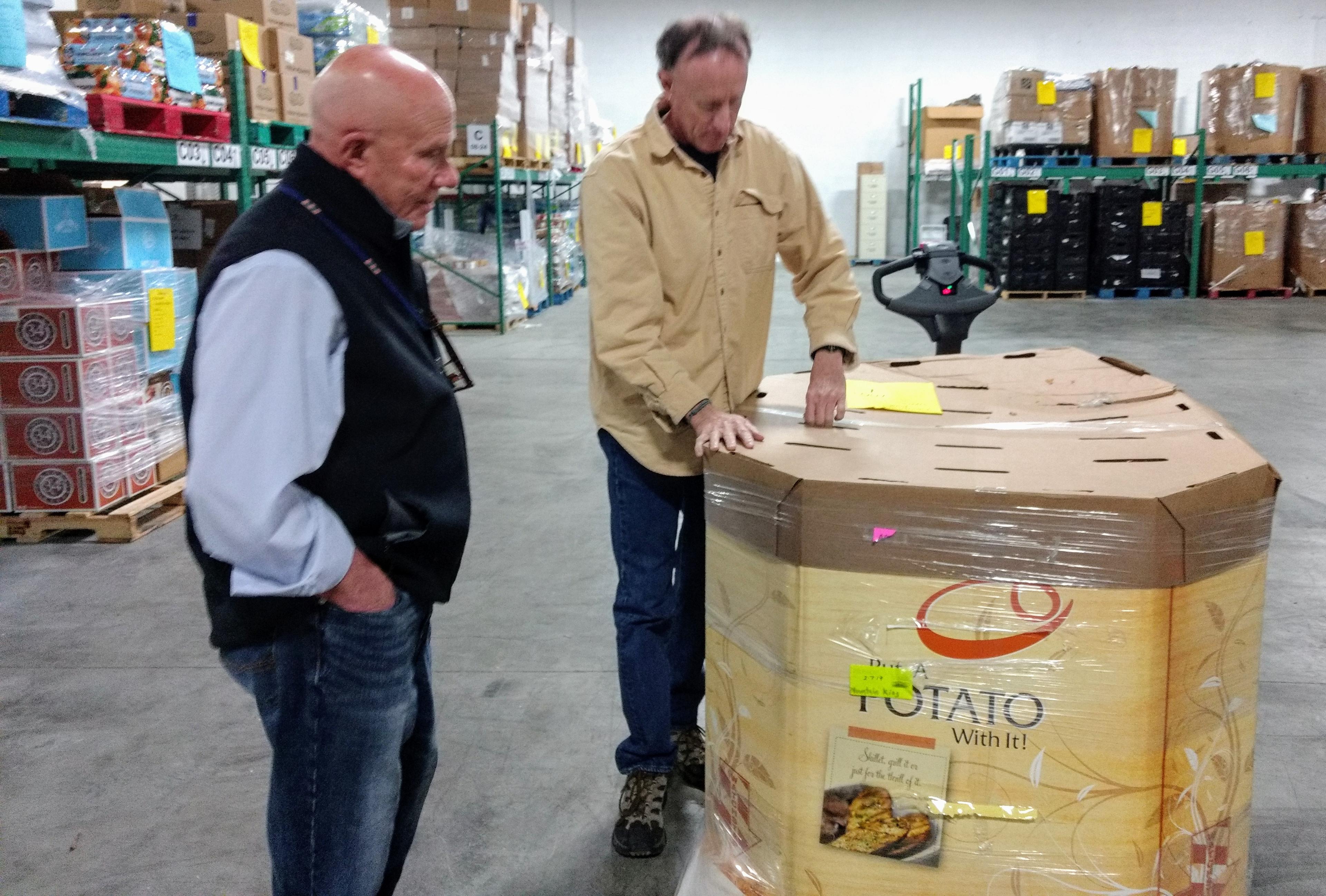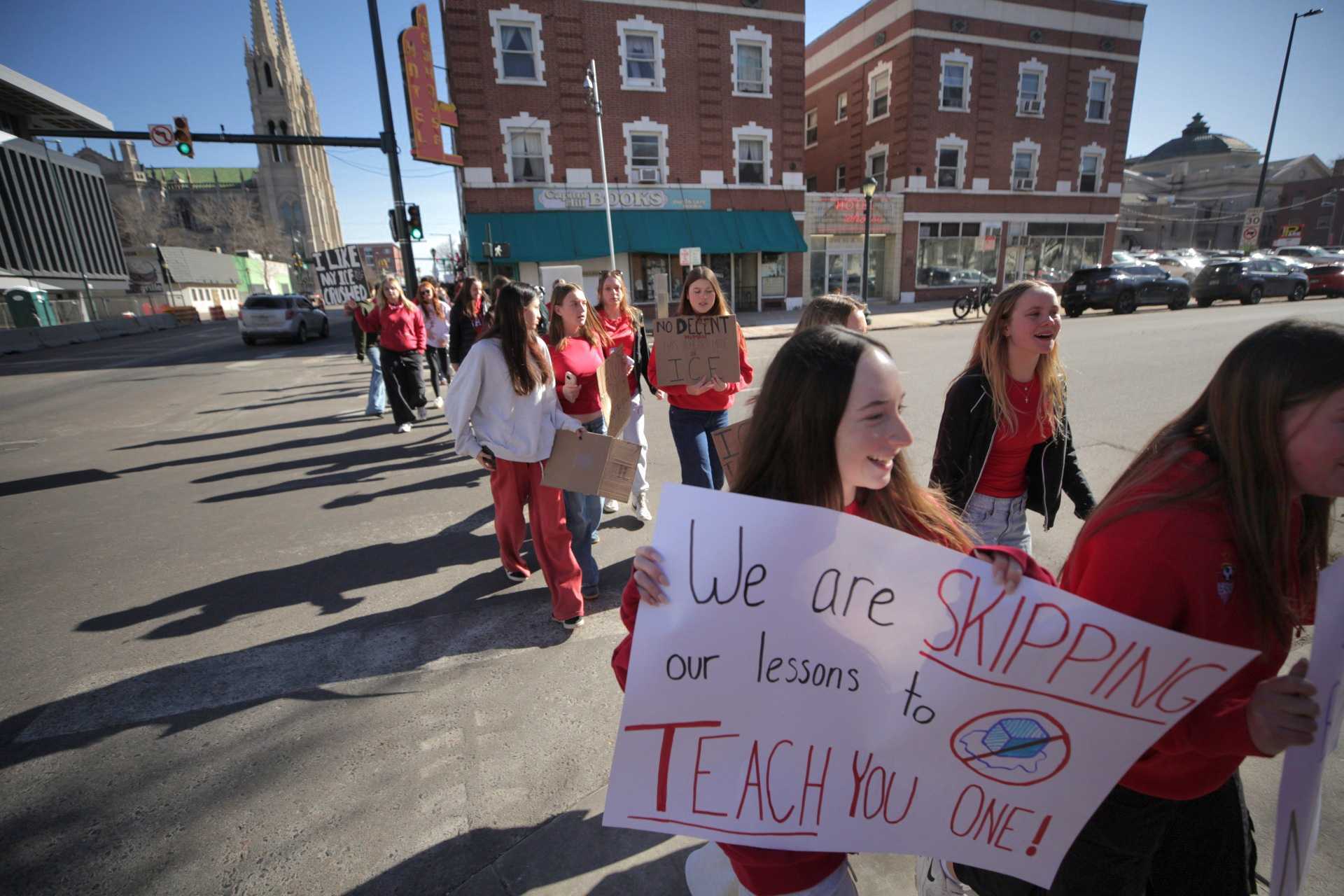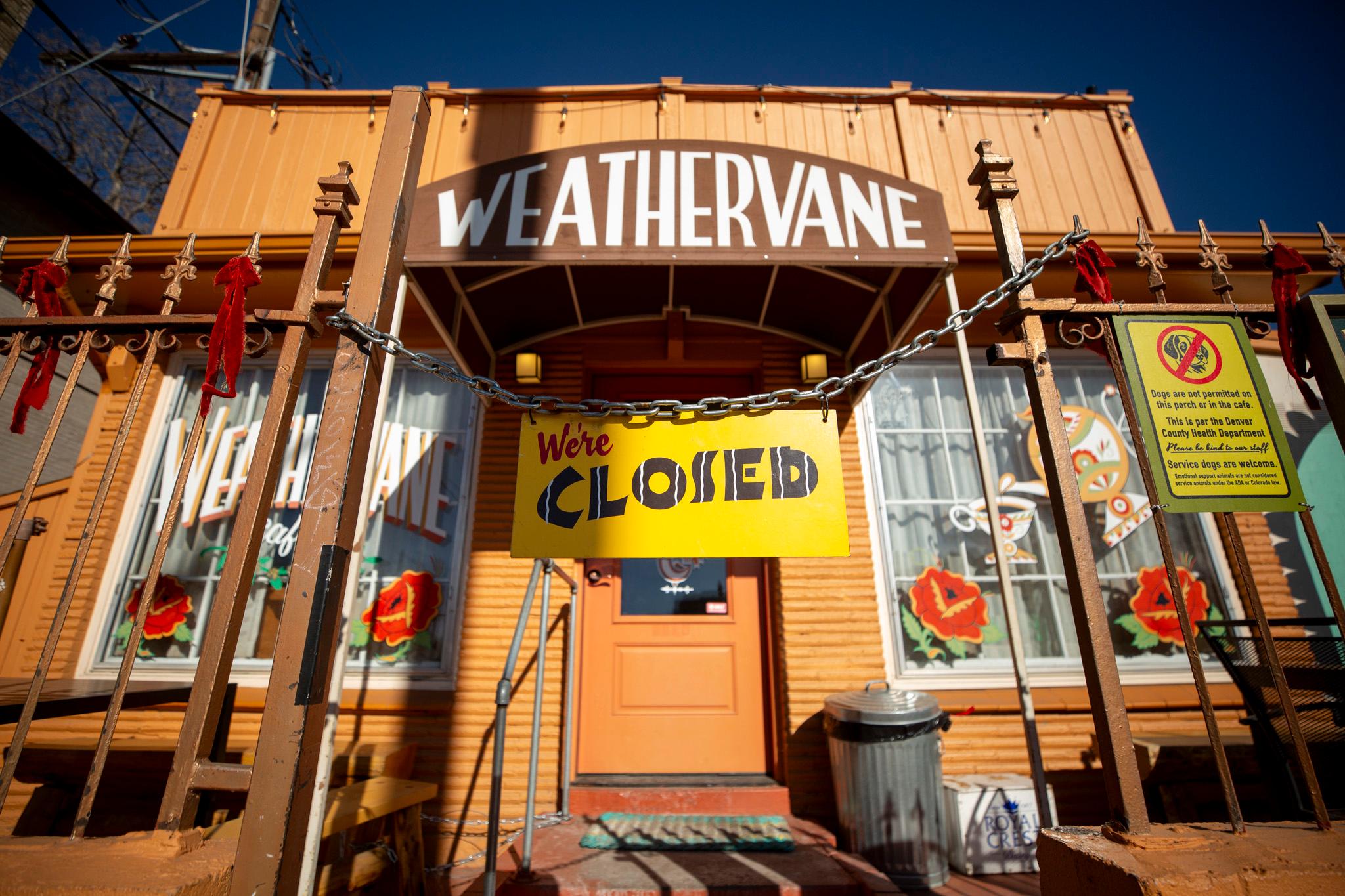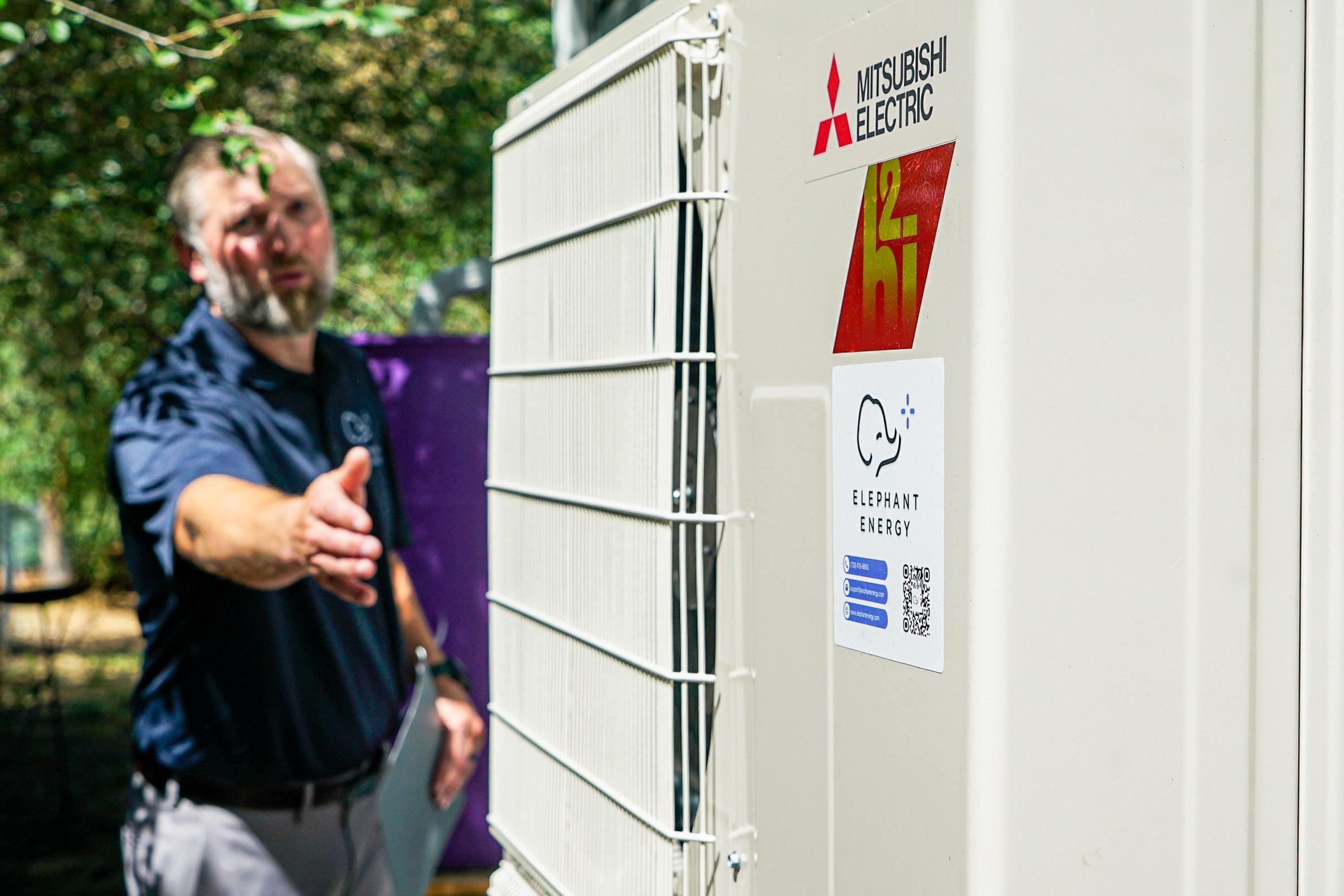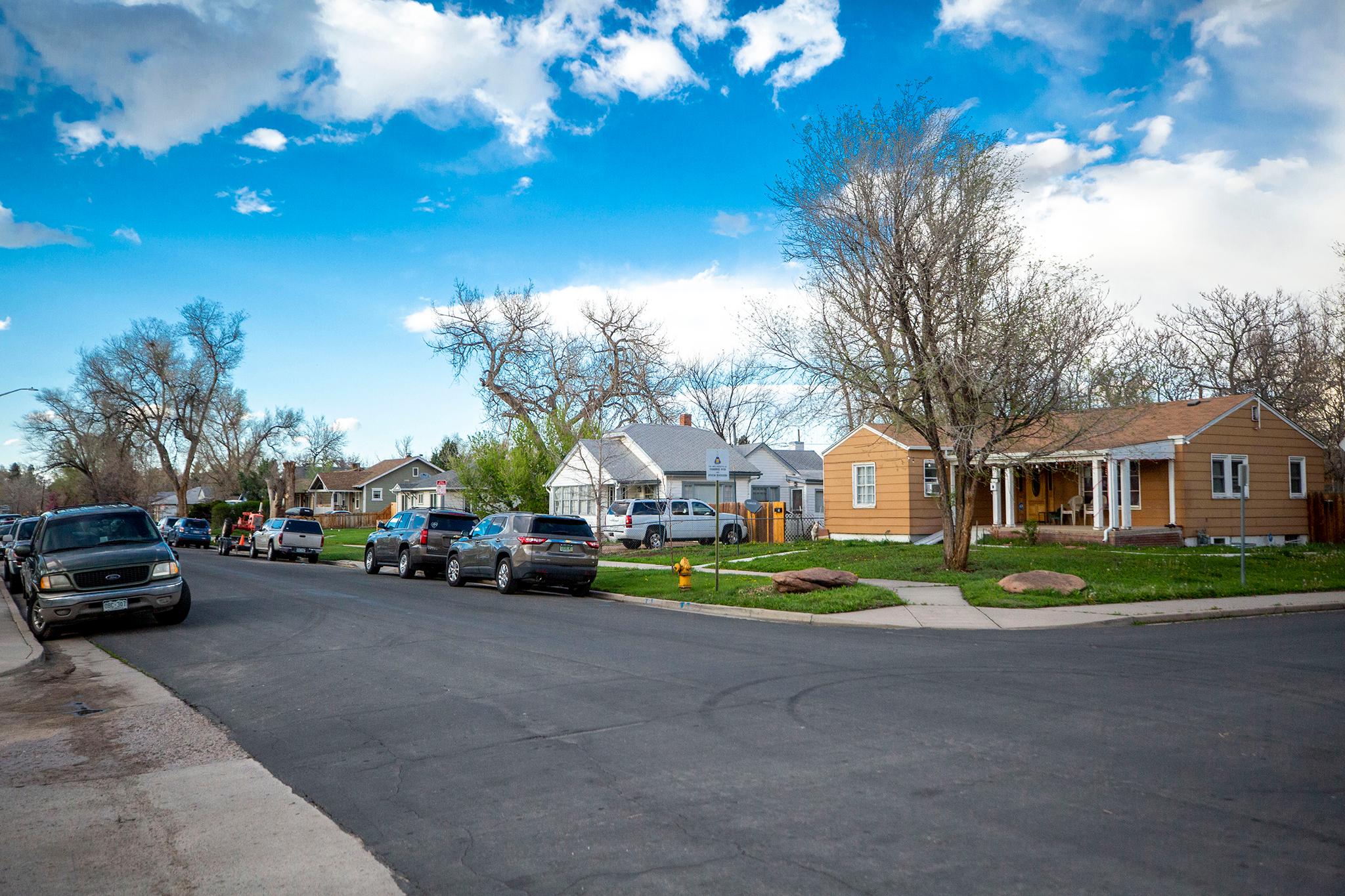You have to pay attention to the details when you're collecting millions of pounds of food from restaurants, caterers, hotels, wholesalers and delivering it fresh and healthy to the hungry.
So the decade-old nonprofit We Don't Waste -- described by founder Arlan Preblud as "kind of the UPS of food distribution" -- had some logistics expertise to bring to bear when it started its new project, a mobile pantry that has been months in the planning.
"It takes time to do it correctly," said Tim Sanford, We Don't Waste's director of operations.
The day before a refrigerated truck laden with fresh produce and supplies headed to Globeville's Garden Place Academy Tuesday, a team erected a mockup of a no-cost grocery store in We Don't Waste's warehouse. Except staff doesn't like to use that name for the 11,750-square-foot, concrete-floored space in the warehouse district near Denver Mart. The mission is moving, not storing, perfectly good food that might be thrown out because it's ugly, the wrong flavor, or just never got ordered by a customer.
Monday's mockup helped ensure We Don't Waste's no-cost grocery store would have everything necessary -- serving tongs, trash bins, shopping bags, scales, Sanford said.
"As an organization, whenever we do something, we really do our homework," he said. "We want to be sure when we do something we succeed."
The preparation paid off. We Don't Waste served 111 families at Garden Place Tuesday afternoon. At one point, Preblud asked a parent who was helping manage the pantry whether it should stay open the planned three hours. He was told: "They're calling their friends. You'd better."
The homework had included mapping the areas where Denver's poorest residents live. We Don't Waste overlaid that with a map of food deserts and another of the pantries to which it was already making deliveries. Then the nonprofit set out to find out why the poor, underserved spots on the resulting map were being left out. Founder Preblud determined it was often because local community groups lacked space or storage facilities for a pantry.
We Don't Waste also looked for help.
"We're stronger with community partners than we'd be trying to just make it the 'We Don't Waste show,'" Sanford said.
Preblud's research included attending a parent coffee at Garden Place, a public elementary school of 350 students, nearly 90 percent of whom qualify for free or reduced lunch. Starting this week We Don't Waste's grocery truck will be visiting Garden Place the fourth Tuesday of every month. On the second Tuesday it will be in Elyria-Swansea at Focus Points Family Resource Center, a nonprofit that offers school readiness, literacy, health and other programs for northeast Denver residents.
"We looked at locations where we could have a major impact," Preblud said. "The Globeville-Elyria-Swansea area is not only a food desert but the area has been very severely impacted by the I-70 construction."
Ryan Moore, a teacher and the family liaison officer at Garden Place, said she knew parents of her students had to drive long distances to shop and often resorted to fast food restaurants when they were short of time. She said eating habits could change because of the mobile pantry. She added that she was impressed with the We Don't Waste team, which began talks with her school before Christmas, from the start.
"This is just people who want people to eat good food," she said. "I appreciate that aspect of their personality and their mission."
She also appreciated that We Don't Waste was leaving the food choices to the families who use the pantry and that it had turned to parents from the school as volunteer navigators, ensuring the project is led by the community.
"I am happy to invite someone into my school that has that attitude," she said.
At Focus Points, Mayra Ramirez said that We Don't Work would meet a need in a neighborhood with only a few corner stores that, if they sold fresh fruits and vegetables at all, sold them at high prices.
"I'm really excited about this opportunity to support our community and to support the mission of We Don't Wast," said Ramirez, who is director of family programs at Focus Points.
Since Preblud started collecting and delivering food in his Volvo station wagon in 2009, We Don't Waste has worked on a business-to-business model, letting partners like the Colorado Coalition for the Homeless and Volunteers of America get the food to individuals in need. The mobile pantry will mean direct interaction with "customers." We Don't Waste has some in-house expertise in staff such as Sanford, who once ran the no-cost grocery store at Metro Caring. It also reached out for training to The GrowHaus, which has an indoor farm in Elyria-Swansea and sells produce at affordable prices.
"We understand that we need to do this with dignity, respect and that we have to do it competently and effectively," Preblud said. "It's an extension of our mission."
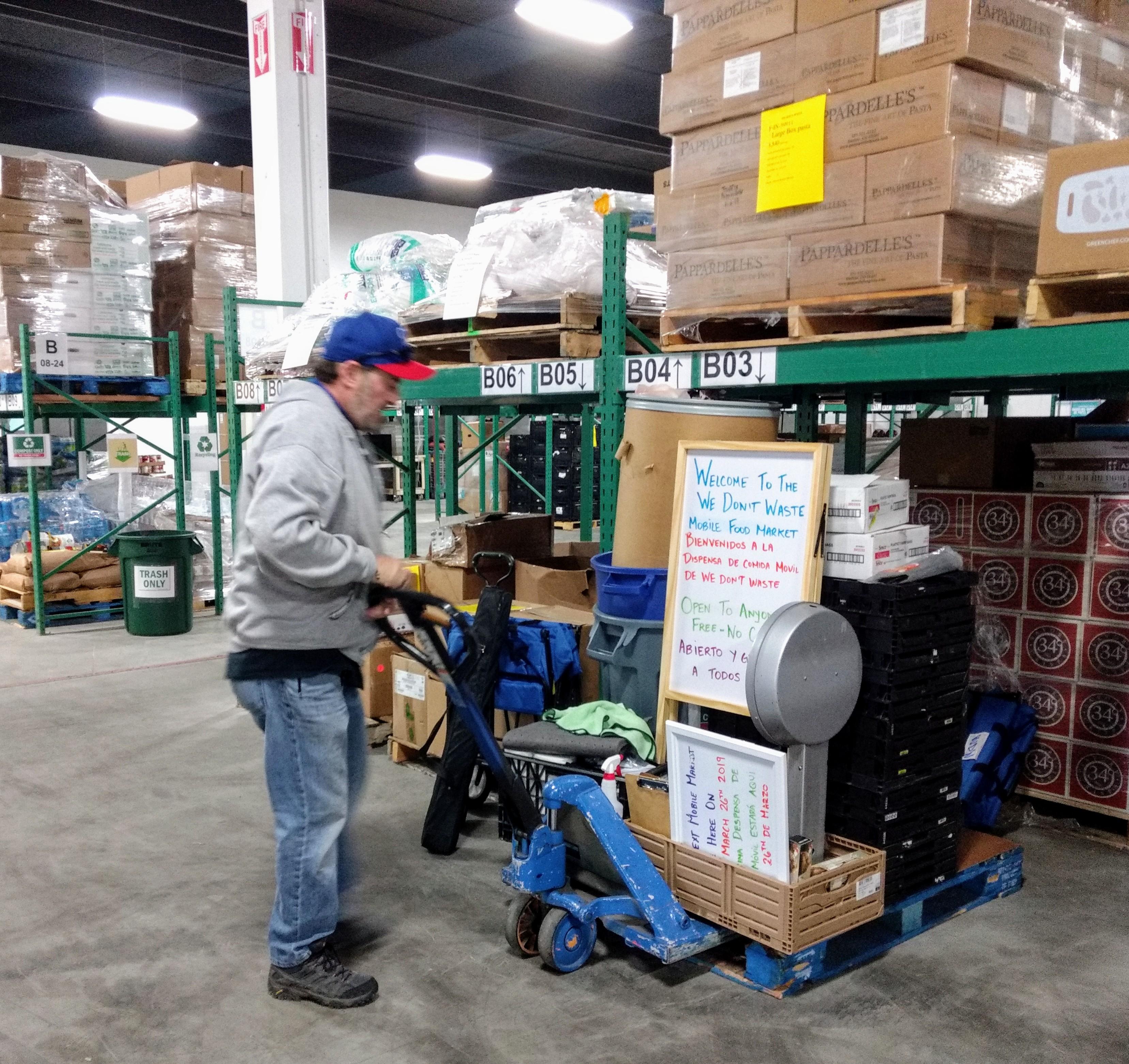
Matthew Karm, who has been a food recovery specialist for We Don't Waste for fives years, was enthusiastic about the new project.
"This is a different level of care," he said. "This is a different type of impact for us. And it's personal."
We Don't Waste can't always be sure what donors will hand over. It focuses on perishable items such as fresh produce, lean proteins and dairy products. Monday, Sanford had on hand for the mobile pantry items such as potatoes, milk, sour cream, bell peppers, lettuce and orange juice.
"We never know what we're going to get," he said."But we're very nimble on our feet in trying to provide a good variety of food."

